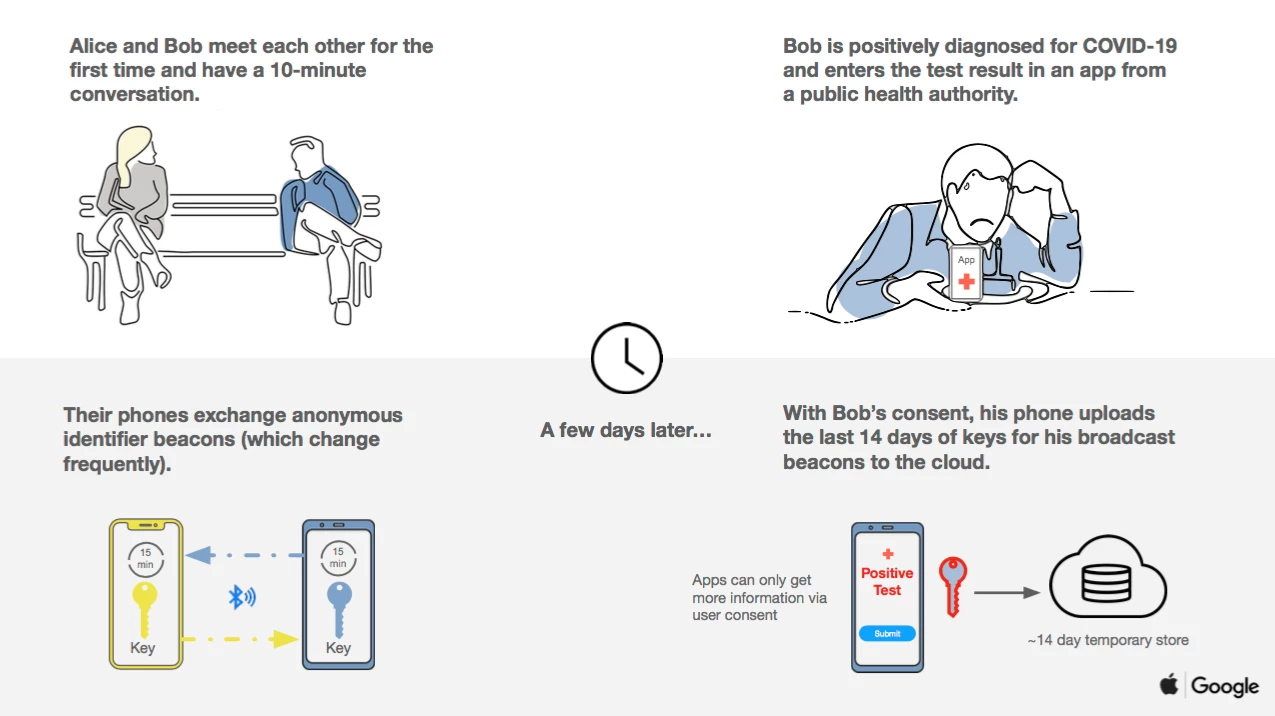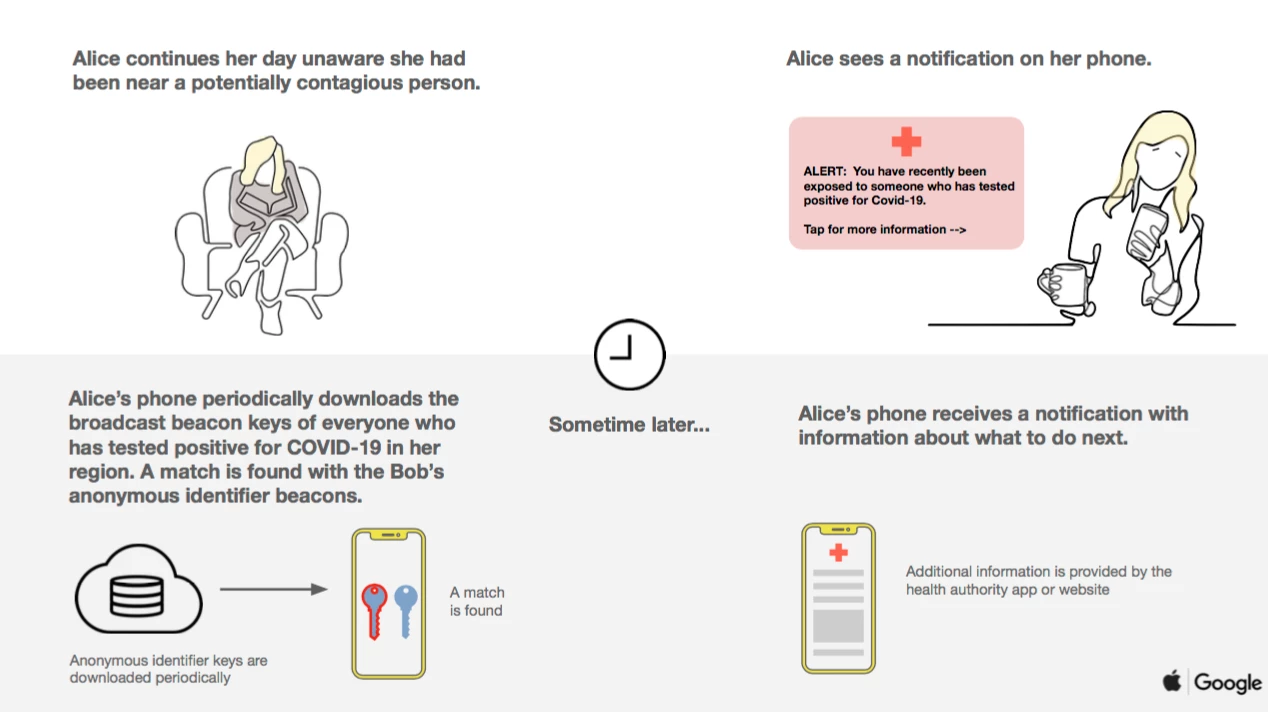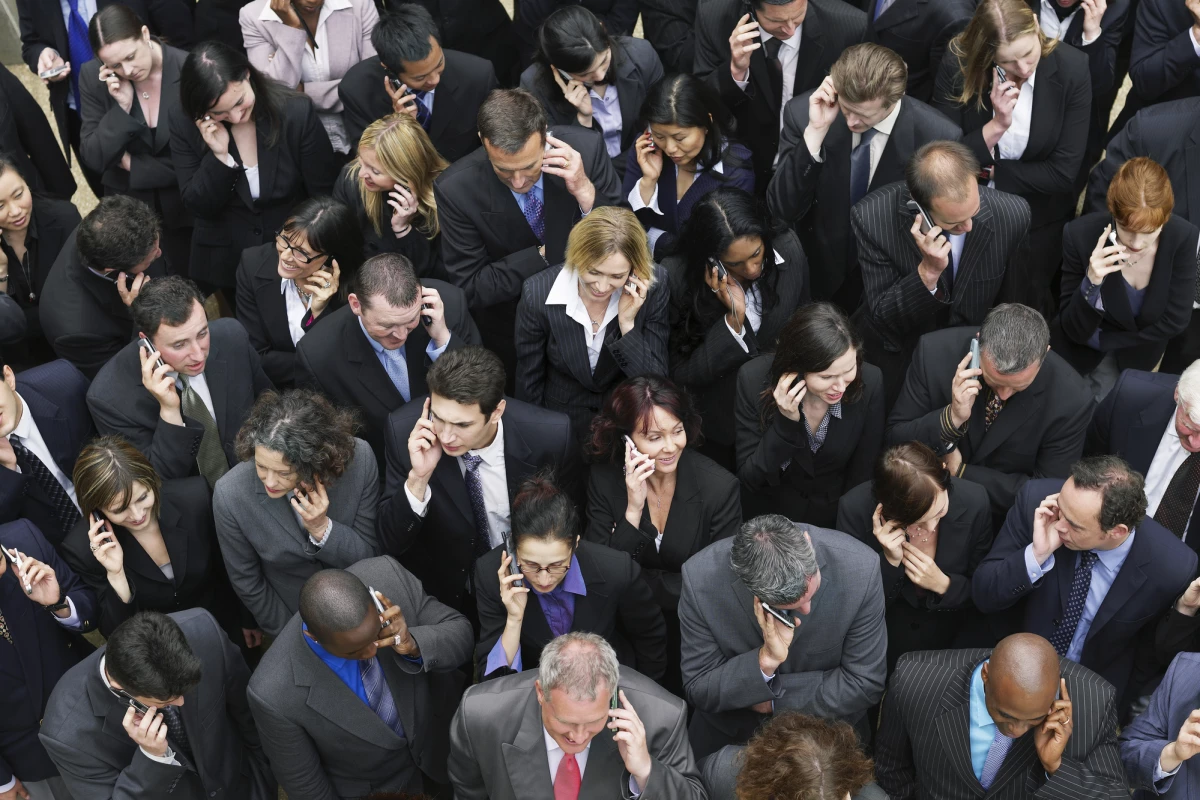In an unprecedented collaborative move, Google and Apple are working together to develop a novel smartphone-based system that can help identify those who have been in proximity to someone with COVID-19. The Bluetooth-based technology will begin rolling out on both iOS and Android devices from mid-May.
With most of the world in lockdown, subject to severe stay-at-home orders, many are asking how we can re-emerge without suffering subsequent viral outbreaks. Contact tracing will be a vital technique in stemming the spread of COVID-19 over the next year or two while the world waits for a vaccine.
Contact tracing is basically public health detective work. When a person is confirmed with an infectious disease, it becomes important to identify who they have been in contact with in the time leading up to their diagnosis. This allows those potentially exposed to an infection the chance to be tested and self-isolate. Contact tracing is one of the most effective ways to stem the spread of communicable diseases.
A recent study led by Oxford University researchers, and published in the journal Science, suggested classic contact tracing methods may be too slow to stop the spread of this new coronavirus. The study found digital contact tracing techniques, leaning on the ubiquity of smartphones, may be the best way to slow transmission and allow countries to safely end lockdowns.
“Our analysis suggests that about half of transmissions occur in the early phase of the infection, before you show any symptoms of infection,” explains Christophe Fraser, lead author on the recent study. “Our mathematical models also highlight that traditional public health contact tracing approaches provide incomplete data and cannot keep up with the pace of this pandemic.”
The solution proposed by Google and Apple is one that attempts to balance efficacy while maintaining the privacy of users that opt-in. The system will not utilize GPS location-based data, but will instead rely on Bluetooth technology.


The smartphone system will essentially create an ongoing log of other smartphones it has been in close proximity with. If a person tests positive for COVID-19 they can register their diagnosis through an app that then logs the diagnostic data and notifies other users that have been in close proximity with the newly diagnosed case.
The fundamental privacy hinge the system relies upon is that these Bluetooth contact logs stay on an individual person’s phone, and all match identification processes take place locally on a user's phone. Plus, the identity of those testing positive to COVID-19 is never disclosed to other users.
The system is set to be rolled out in two phases. Phase one will deploy in mid-May and involve an application programming interface (API) being released to allow for apps designed by public health authorities to interact with this digital contact tracing data. This means if users want to take part in the system, they would have to download a specific app designed by their local health authority.
The second phase, to be rolled out in the coming months, will involve a broad iOS and Android system update to integrate the contact tracing tool into each smartphone’s operating system. This means users will not have to download a specific app to opt in but instead be able to activate contact tracing through a menu option in their phone settings.
As stressed by Apple and Google in a recent joint statement, the entire system will be opt in, so users will have to choose to activate it and participate. All Bluetooth contact logs will only be stored locally on each user’s phone, and those logs contain no location information, only notes on what other smartphones have been in its proximity over the prior 14-day period.
“Privacy, transparency, and consent are of utmost importance in this effort, and we look forward to building this functionality in consultation with interested stakeholders,” the two companies say in a joint statement announcing the project. “We will openly publish information about our work for others to analyze.”




